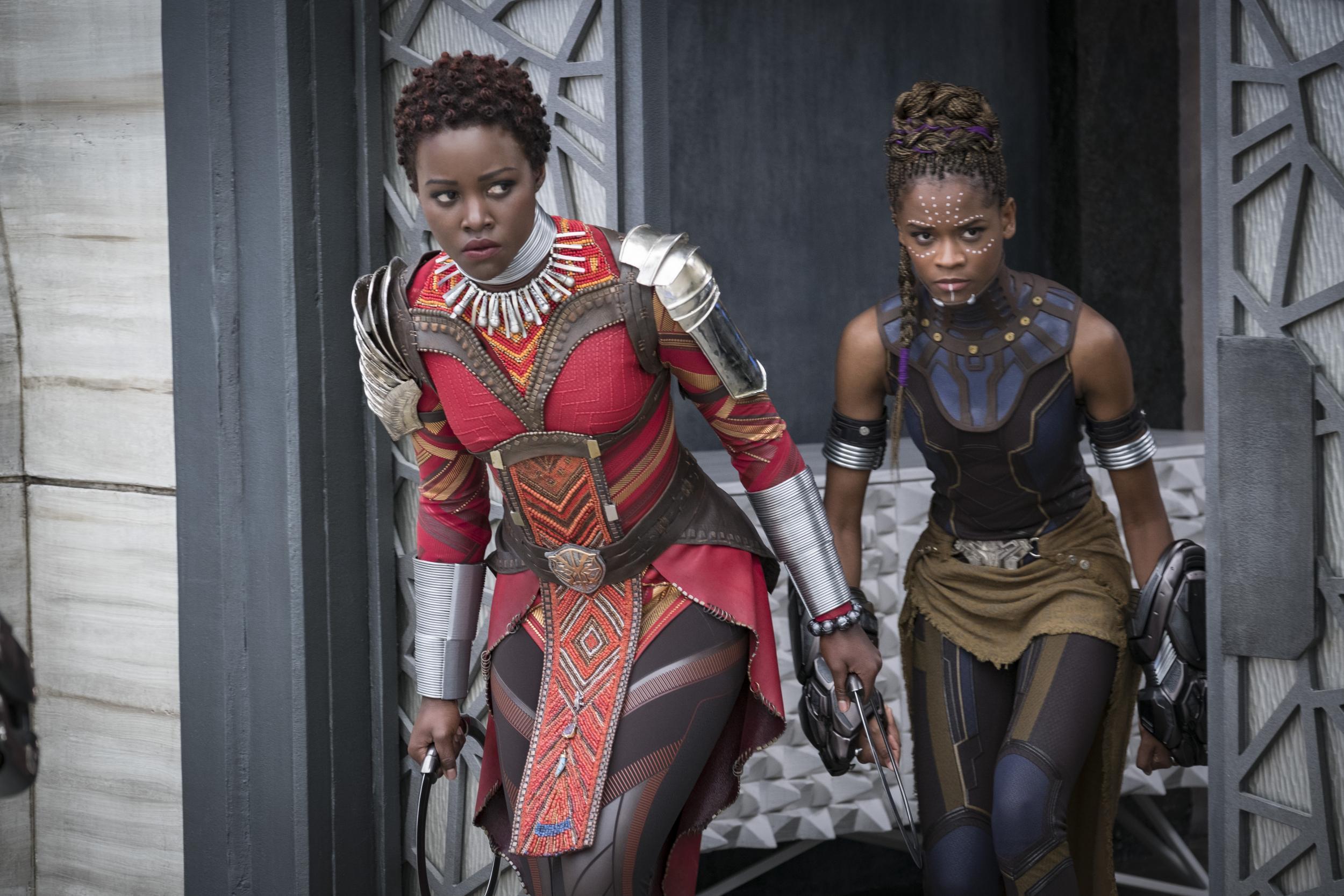Showing Black Panther in Saudi Arabia is one of the first steps to fighting radical Islam
Re-opening cinemas after three decades is all part of the Crown Prince's Vision 2030. It’s about making Saudi Arabia more vibrant and diverse. More fun

Your support helps us to tell the story
From reproductive rights to climate change to Big Tech, The Independent is on the ground when the story is developing. Whether it's investigating the financials of Elon Musk's pro-Trump PAC or producing our latest documentary, 'The A Word', which shines a light on the American women fighting for reproductive rights, we know how important it is to parse out the facts from the messaging.
At such a critical moment in US history, we need reporters on the ground. Your donation allows us to keep sending journalists to speak to both sides of the story.
The Independent is trusted by Americans across the entire political spectrum. And unlike many other quality news outlets, we choose not to lock Americans out of our reporting and analysis with paywalls. We believe quality journalism should be available to everyone, paid for by those who can afford it.
Your support makes all the difference.Black Panther – Marvel’s latest superhero blockbuster – is seen by many as a watershed moment in cinema; the film heralding a new era where, for the first time, black superheroes matter.
At its screening in Riyadh this week, Black Panther was also the first commercial film to be shown in public cinemas in Saudi Arabia in more than 30 years.
The move to re-open cinemas for the first time this century makes economic sense. No longer will Saudis have to travel outside the Kingdom’s borders to fill the coffers of Dubai or Bahraini cinema complexes to witness T’Challa’s battle against evil in the fictional kingdom of Wakanda. But it also represents something more significant than the widening of Saudis’ entertainment choices.
Few in the West realise that restrictions on entertainment were imposed fairly recently. Members of my family who grew up in Riyadh in the 1970s remember the pleasure of keeping up to speed with the latest releases until the country’s lurch towards a more conservative interpretation of Islam.
In those pre-ban days, many blockbusters were screened in football clubs. Jeddah also boasted around 30 cinema houses for Arab classics and some Hollywood releases. Famous hijazi families also showed films in their back yards. It was slightly different in the Eastern province where the oil company Aramco used to put on cowboy and horror films for its thousands of western workers in state of the art movie theatres in the city of Dahran.
The projector bulbs went out with a pop when the government came under increasing pressure from religious clerics and their followers of the Al Sahwa (Islamic Awakening) movement who had occupied the Grand Mosque in 1979. Their aim was to overthrow the royal family and impose a stricter religious system over the country.
But the stranglehold of clerics over the viewing habits of millions of Saudis has changed in recent years with the advance of the internet and social media.
Half of Saudi Arabia’s population is under the age of 30 and are increasingly watching shows and films online. Their digital savviness has slowed down the public clamour for lifting the ban on cinema. But lifting the ban is useful for keeping the approval ratings for the young Crown Prince Mohammed Bin Salman rock solid, reinforcing Saudi youth’s view that he is one of them, who sees the world the way as they do.
Last February, the Royal Palace announced it would be spending $64 billion over the next decade developing the entertainment industry with thousands of events from Cirque du Soleil to Maroon 5.
The return on that investment is predicted to yield $133 billion a year, raising much needed revenue and providing thousands of jobs for the unemployed – all key parts of MBS’s Vision 2030 programme.
That’s also great news for women who, despite graduating from university in far greater numbers than men, account for just 22 per cent of the workforce. Saudi Arabia’s General Authority for Entertainment is promising some 200,000 jobs for both sexes by 2030.
As well as abolishing of male and female segregation in cinemas, lifting the ban will be the shot of adrenaline for Saudi Arabia’s creative industries. More talented creatives can go from YouTube to the mainstream, spurred on in no small part by the recent success of Barakah Meets Barakah by Mahmoud Sabbagh, the first Saudi production to feature at Cannes and which smashed stereotypes by being a romantic comedy. Saudis are also winning prizes at Arab and other international film festivals.
Even religion isn’t off limits. Strong statements about a return to more moderate Islam have gagged radical voices. And so far, the pushback by conservative voices has been more timid than many had feared.
The sheer pace of reform has caught the imagination of the country. Vision 2030 stands for something more significant than floating Aramco or trying to rebalance the economy. It’s about making Saudi Arabia more vibrant and diverse. More fun.
As Everett Ross says to T’Challa in Black Panther, “I have seen aliens drop from the sky. But I have never seen anything like this”, so too will millions of Saudis be thinking which next totem will be felled by their radical new leader.
Najah Alotaibi is a senior analyst at the Arabia Foundation
Join our commenting forum
Join thought-provoking conversations, follow other Independent readers and see their replies
Comments